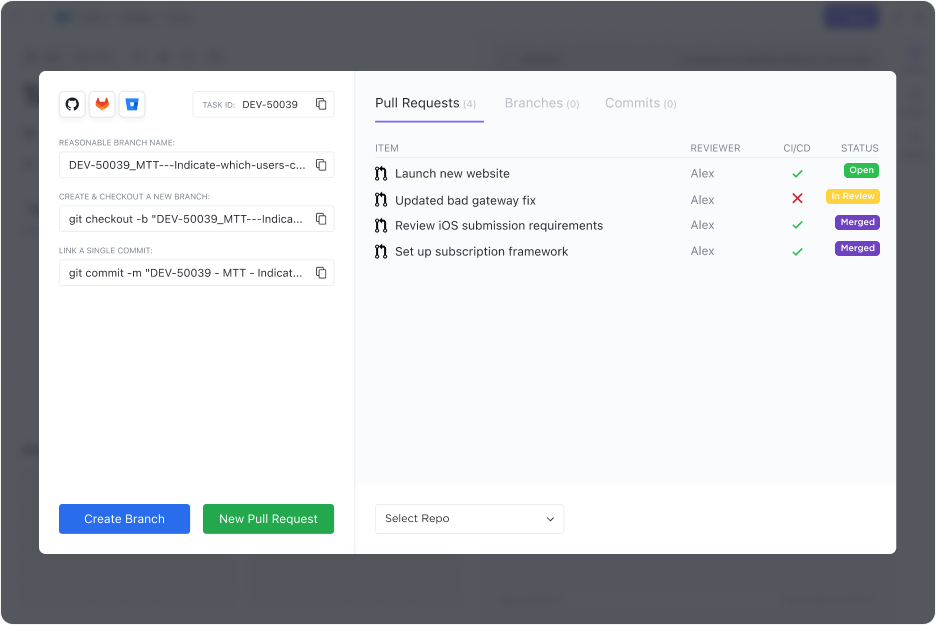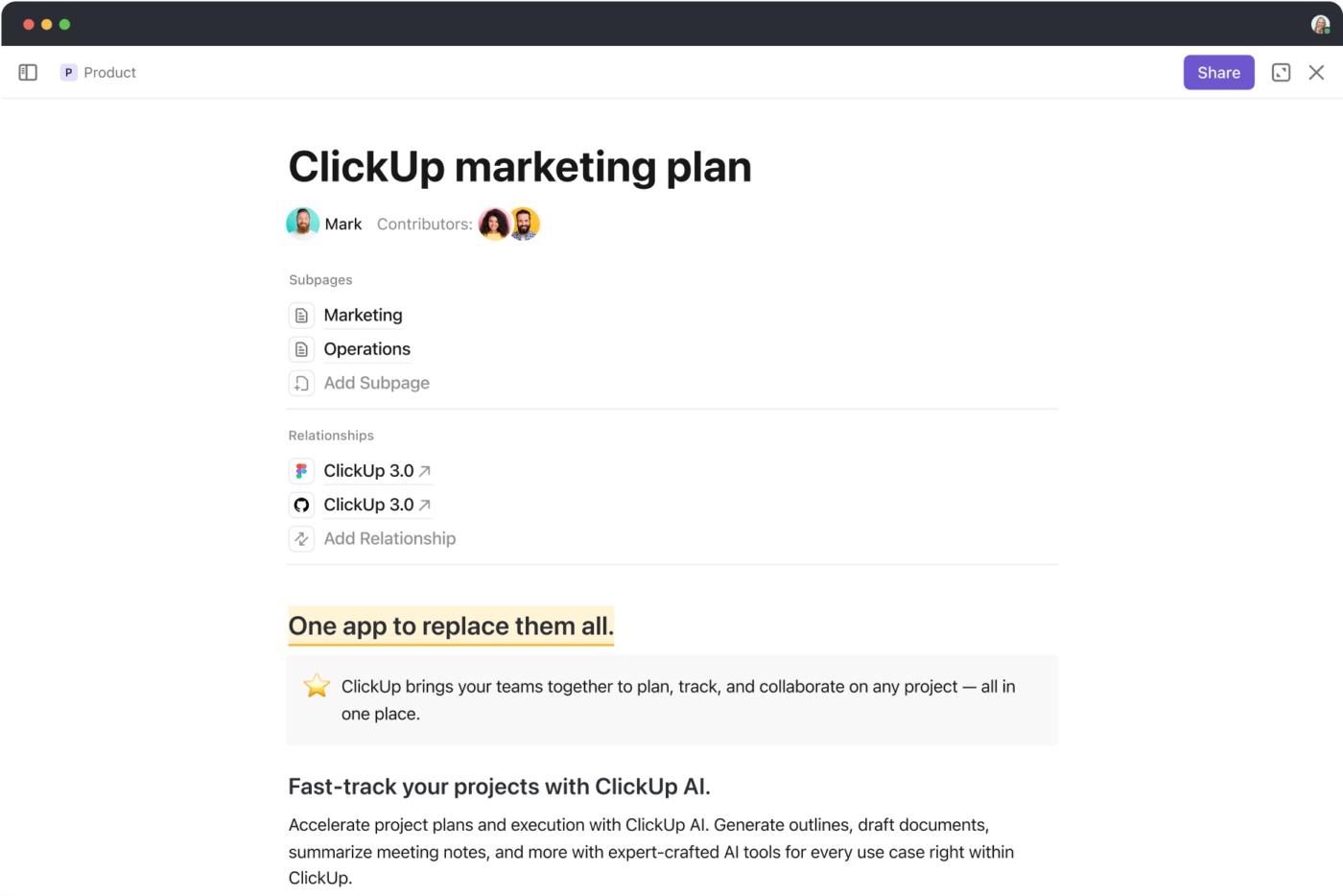Cloud Collaboration: Benefits & Challenges

Sorry, there were no results found for “”
Sorry, there were no results found for “”
Sorry, there were no results found for “”
Gone are the days when software was installed directly to desktop machines in an office space—which is not always within reach if you’re remote or working on-site during a construction project. Now it’s easy to access your files from anywhere with an internet connection, thanks to cloud solutions.
Not only can you work on your files independently, but you can contribute to documents, share files, and leave comments for team members too. This is all part of cloud collaboration.
In this guide, we’ll explore what cloud collaboration is, the benefits and challenges, and how you can introduce a new way of working with your teams in the best possible way. 🌻
Cloud collaboration is where multiple employees work together on one document, project, or piece of software that’s stored in the cloud. These offsite files can be opened by, worked on, and shared by more than one person at a time—making team collaboration possible.
With cloud collaboration, editing and updates happen in real time. This is made possible thanks to files being synced to the cloud server, so everyone always has the latest version available. Cloud collaboration allows teams to work more efficiently, effectively, and harmoniously together—whether you’re in an office, on-site, or logging in remotely. ☁️
These days, a lot of work happens inside cloud-based tools and platforms. Email, digital marketing, project management, and almost every aspect of business is run from a cloud service. Some of these tools are better for remote team collaboration than others, though.
Cloud collaboration tools can take many forms, including:
Let’s take a look at some of the top cloud collaboration tools. You might use one or more of these at work already, and if not, they may be worth exploring further.

Dropbox is a popular file hosting service, known and appreciated for how easy it is to use. Dropbox brought file sharing to the masses, and it continued to roll out features designed for enterprise too—including dedicated solutions in Dropbox for Construction.
Like many software tools, Dropbox integrates well with others. You can use the ClickUp-Dropbox integration to pair the two tools together and easily attach your Dropbox files to ClickUp tasks and more.

GitHub is the go-to cloud collaboration tool for software developers. It’s a central place where they can store, collaborate on, and share code. GitHub’s AI-powered platform allows development teams to automate steps in the development workflow for greater productivity.
For development teams that want to mix the benefits of GitHub with the all-in-one functionality of ClickUp, the ClickUp-GitHub integration makes this possible. Automatically track merges, commits, and pull requests in ClickUp for streamlined monitoring.

While Microsoft Office once reigned supreme in the days of on-device software, Google Docs appears to lead the crowd when it comes to cloud collaboration in document creation. Teams can use Google Docs to create, edit, and share text documents—all from the cloud.
Those Google Docs files end up stored in Google Drive, which is just as easy to use and navigate. You can also bring that functionality straight into ClickUp to quickly attach files or browse your Google Drive without leaving the app—thanks to the ClickUp-Google Drive integration.

Microsoft Teams is one of the most popular team communication apps available today. The platform allows teams to chat, share files, host meetings, and collaborate on tasks, projects, and initiatives.
With the ClickUp-Microsoft Teams integration, you can enjoy a seamless experience between both apps. Automatically see the details of ClickUp links shared inside Teams, attach tasks, and get notifications on status changes directly in your channels.
With your data stored somewhere off-site, it’s no surprise that security is a key concern for anyone exploring potential cloud-based collaboration tools. Luckily, this way of working actually introduces security benefits. 🔐
Instead of having multiple copies of potentially outdated or incorrect files available, everyone is working from one, correct version. With one version of a file, it’s much easier to maintain version control. Most tools allow you to see a detailed version history, including what changes were made, when they were made, and who made them.
The best enterprise collaboration tools also make it easier to protect files against unwanted viewers. Keep close control over who has access to files and folders, and limit sharing options on files that should remain confidential or under close supervision.
You can expect most secure collaboration tools to prioritize compliance and data security, but it’s worth comparing how each platform handles this if you’re looking to switch to a new one.

For example, at ClickUp, we take security seriously. Not only do we offer different levels of user roles, permissions, and sharing settings, but everything takes place inside an environment with end-to-end security.
Cloud collaboration enables your team members to work more efficiently, without unnecessary barriers in the way. Let’s look at some of the major benefits of cloud collaboration.
Cloud collaboration software platforms not only invest in security but speed too. Many platforms are lightning-fast, enabling team members to access files almost instantly. This introduces efficiency and cuts down on the frustration of waiting for a template or spreadsheet to load, open, or refresh to the latest version. 📁
Collaboration solutions give you a range of options when it comes to access control, making it easier to control which end users can view, edit, and share specific files or folders.

Platforms like client collaboration tools also allow you to easily share files with clients or customers—a must-have for sharing quotes and status reports with construction project clients. Whether your organization is large or small, being able to individually control access is a huge win for security. 🔑
While plenty of software tools exist in the cloud, it’s teamwork that these collaboration platforms are famously good at. Features like real-time collaboration and comments enable higher levels of teamwork, more transparency, and the opportunity to produce better work thanks to the input of others. 🏆

Teams that use online collaboration tools don’t have to send email requests for files, wait around for others to provide updates, or waste time downloading large files. Instead, they have access to everything they need right away—introducing greater levels of productivity. 📈
Remote collaboration tools make it easy for anyone to access your files, from any web browser or device. This means you can move your team to a remote or hybrid model more effectively, or if you’re a construction company, your teams will be able to share information between locations and access what they need from any job site.
Instead of requiring employees to access files on a specific device, cloud tools allow them to work independently and together from any location or time zone in the world. 🌎
This approach to file management and working isn’t always a positive experience. Like any software project, introducing and maintaining a cloud collaboration platform can suffer from the following challenges.
Software owners know how valuable these tools are, which means some can be unaffordable for those leading small teams or companies. Plans may seem promising at first, but the price quickly increases as you introduce new users or add extra features. Look for a platform that delivers on functionality and has affordable pricing plans. 💸
Cloud collaboration is effective, but deploying any software project at scale can be a huge challenge. You need an effective strategy, a planned rollout, plenty of training, and someone to be responsible for owning the project. Without these elements, it’s hard to introduce and manage these platforms effectively. 🏢
In today’s world, teams are juggling plenty of software tools—whether for team communication, email management, or project management. Adding another team collaboration tool or integration to the mix might cause overwhelm, and your team members may not engage at all.
Cloud collaboration has plenty of benefits for remote teams or those that work from different job sites,, but the downsides are important to consider too. However, you can mitigate them by making smart decisions and choosing the right platform. ✔️
Introduce your team members to new, more effective workflows with ClickUp. Our powerhouse platform has all the features your organization needs to run project management, task management, operations, marketing, and more. Think of it as the one app to replace them all—or the central hub for all your existing tools thanks to our wide range of integrations.
With so many features, your employees won’t experience software overwhelm—instead they can embrace having everything they need in one place. Empower team members to track progress with ClickUp Tasks, collaborate on shared documents, brainstorm together with ClickUp Whiteboards, and manage projects from one central source of truth.

Working on documents or construction plans at the same time can introduce problems with some software tools—like knowing whether someone else is working on the document. At ClickUp, we’ve solved this frustration with advanced collaboration detection that makes real-time editing and instant updates a streamlined and highly visual experience.

ClickUp also offers you a place to store all your knowledge, so you can manage and optimize your cloud collaboration rollout. Use ClickUp Docs to create an internal wiki that explains your collaboration strategy, and share it with all your team members—no matter which location or job site they’re working from.
And with ClickUp Goals set internal progress goals, then monitor them with ClickUp Dashboards.

Think of ClickUp not as an additional tool that introduces cloud collaboration opportunities, but one where remote teamwork and productivity are baked in.
Working together is an age-old practice, but being able to do this effectively online is a relatively new experience. It’s no wonder we still have so many questions about how it all works and how we can do it effectively.
Here are some of the top-asked questions about cloud collaboration.
Cloud-based collaboration in construction works the same way as it does in any other industry, but there are significant benefits within this niche. Introducing a project management collaboration tool allows construction teams to reduce errors, improve auditing, and streamline project management—all of which can enable a construction project to move forward on time, on budget, and without any unnecessary complications. 👷
Cloud storage is a method of saving data off-site and providing access to it via the internet (aka “in the cloud”). This allows the data to be retrieved from any location and often any device.
Most digital platforms feature cloud storage, but popular dedicated tools include Google Drive, Microsoft OneDrive, and Dropbox. 📚
Cloud storage refers to the way that data is stored and saved, and cloud collaboration refers to the way that teams interact with those files. Cloud storage is a prerequisite if you want teams to be able to work on files at the same time, collaborate through comment threads, make real-time suggestions, and always see the latest version.
Without cloud storage, it’s impossible to make cloud collaboration happen. 💬
Cloud computing allows for a remote-first approach, which allows individuals to work on documents from any device or geographical location. While this is useful by itself, the real value comes with collaboration—the opportunity for individuals to work together to run projects, create documents, organize files, and manage businesses. 🗺️
Cloud collaboration offers organizations a huge range of benefits—from increased productivity to tighter security and access control. Use this guide to understand more about why it’s so valuable, and how you can use collaboration to empower your teams.
If you’re ready to give your team members everything they need to embrace cloud collaboration, try ClickUp for free. It’s the one app you need to replace your mix of project, task, and people management tools—or bring them all together. Make the move, and enjoy the benefits of having everything in one central place. ✨
© 2026 ClickUp